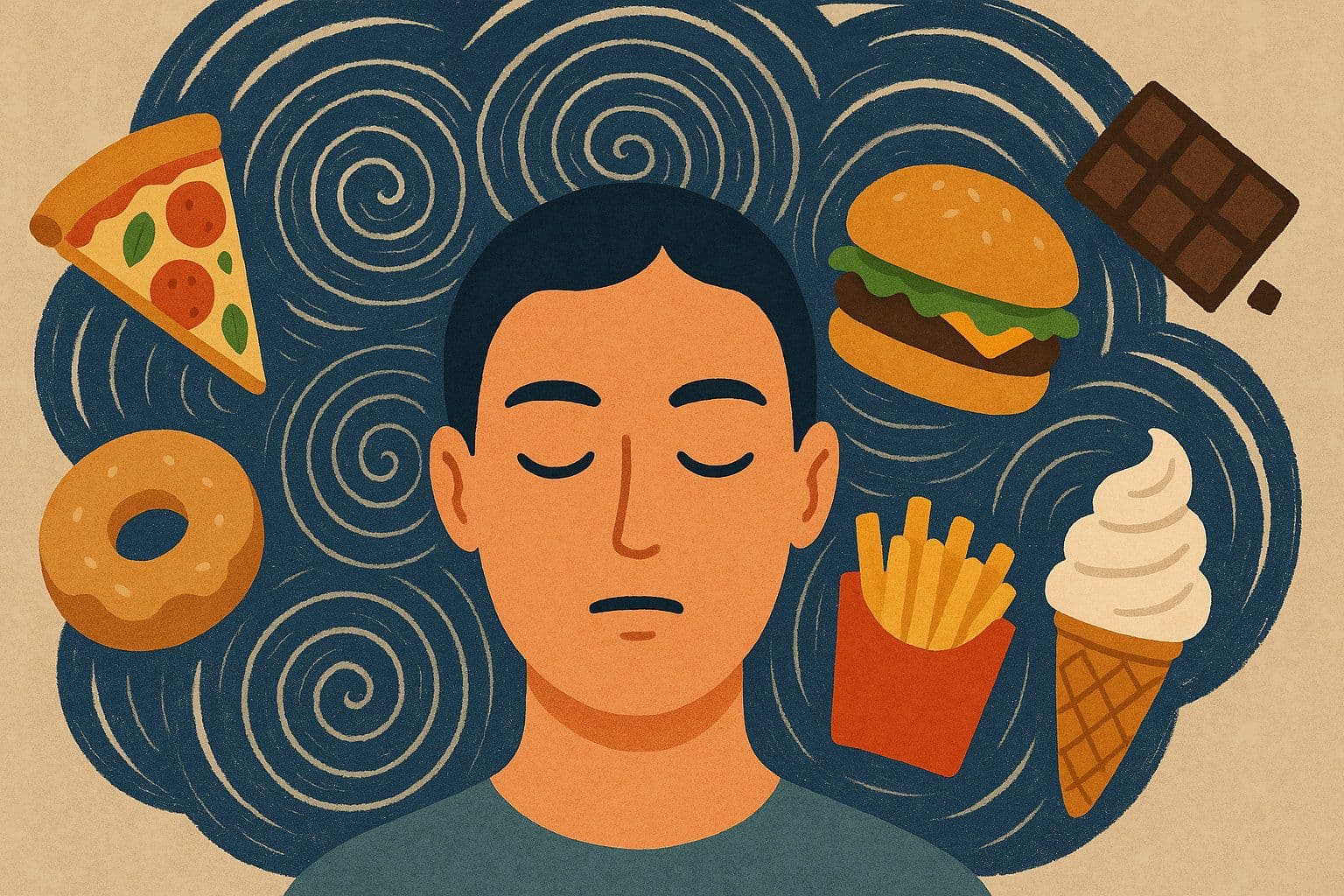Struggling with Emotional Eating? How a Medical Approach Helps
Updated: August 19, 2025

Emotional eating affects more people than you might think. Actually, it's one of the most common obstacles we see in our weight loss practice. And it's not just about willpower or discipline – there's real science behind why we reach for comfort foods when we're stressed, sad, or even happy.
But here's the thing – trying to tackle emotional eating on your own can feel impossible. You promise yourself you'll do better, only to find yourself elbow-deep in a bag of chips after a tough day. Sound familiar?
What Is Emotional Eating, Really?
Emotional eating happens when you use food to cope with feelings instead of to satisfy hunger. It's reaching for those cookies when you're stressed about work. Or ordering takeout when you're feeling lonely. Food becomes your go-to comfort when emotions get overwhelming.
The problem isn't just occasional comfort eating. It's when this pattern becomes your primary way of dealing with emotions. And that's where things get tricky for weight management.
Some common signs you might be an emotional eater:
- You eat when you're stressed, bored, or anxious even if you're not hungry
- Certain moods trigger specific food cravings
- You feel powerless to stop eating once you start
- After emotional eating, you often feel guilty or ashamed
- Regular diets don't seem to work for you long-term
Why Willpower Alone Isn't Enough
Trying to "just stop" emotional eating is like trying to hold back the tide with your hands. It might work momentarily, but eventually, you get overwhelmed.
That's because emotional eating isn't just a bad habit – it's often tied to complex brain chemistry. When you're stressed, your body produces cortisol, which can trigger cravings for high-calorie foods. Your brain has learned that certain foods provide a quick hit of dopamine – the feel-good neurotransmitter.
And fighting against your brain's wiring with nothing but willpower? That's a setup for failure.
The Medical Approach to Emotional Eating
Successful weight management means addressing both the physical and emotional aspects of eating.
A medical approach can include:
Hormone Evaluation
Did you know your hormones play a huge role in hunger, cravings, and mood regulation? Things like thyroid imbalances, insulin resistance, or cortisol dysfunction can make emotional eating much worse.
By testing and treating hormone imbalances, you can often see dramatic improvements in emotional eating patterns. Many patients tell us their food cravings naturally diminish once their hormones are properly balanced.
Brain Chemistry Support
Your brain uses specific neurotransmitters to regulate mood, appetite, and reward pathways. When these get disrupted (which can happen for many reasons), emotional eating often follows.
Through targeted supplementation and medication when appropriate, we can help restore proper neurotransmitter function. This makes it much easier to break the emotional eating cycle because your brain isn't constantly triggering those powerful cravings.
Breaking the Emotional Eating Cycle
Emotional eating creates a frustrating cycle. You feel bad, so you eat. Then you feel guilty about eating, which makes you feel worse. So you eat again to feel better. And round and round it goes.
But with the right medical support, this cycle can be broken. And no, we're not talking about extreme diets or punishing exercise regimens.
Personalized Nutrition Planning
One-size-fits-all diets fail because they don't account for your unique body chemistry and emotional triggers. That's why we create customized nutrition plans based on your:
- Hormone profile
- Metabolic rate
- Food sensitivities
- Emotional eating patterns
- Lifestyle factors
These plans aren't about restriction – they're about finding foods that satisfy both your body and mind. Foods that stabilize blood sugar, support brain chemistry, and still taste good enough to be satisfying.
Stress Response Modification
Stress is often the biggest trigger for emotional eating. But here's what most people don't realize – stress affects everyone differently on a physiological level.
Through specialized testing, we can see exactly how stress impacts your specific body chemistry. Then we can recommend targeted interventions like:
- Specific stress-reducing supplements
- Medications when appropriate
- Breathing techniques that work with your unique stress response
- Sleep optimization strategies
When your body handles stress better, those stress-induced cravings naturally diminish.
Behavioral Support That Actually Works
Let's be honest – changing behavior is hard. That's why our approach includes practical strategies that work in real life, not just in theory:
- Identifying your specific emotional eating triggers
- Creating realistic coping strategies for high-risk situations
- Developing mindfulness techniques specifically for eating behaviors
- Building sustainable habits that don't rely on willpower alone
And unlike generic advice you might find online, these strategies are tailored to your specific medical profile. Because what works for someone with normal cortisol levels might be completely ineffective for someone with adrenal dysfunction.
Success Stories Speak Volumes
Many of our patients have struggled with emotional eating for decades before finding success with our medical approach.
We regularly see patients who have tried countless diets only to regain the weight each time. After identifying and treating underlying insulin resistance and low serotonin levels, their emotional eating decreases dramatically. Many maintain their weight loss for years – something they never thought possible.
Another common scenario involves patients whose stress-eating seemed impossible to control. Once we address elevated cortisol and provide targeted supplements, they find themselves naturally less drawn to their previous comfort foods. The change isn't about forcing willpower – it's about fixing the underlying issues.
Ready to Break Free from Emotional Eating?
If you're tired of the emotional eating cycle and ready for a different approach, we're here to help. Our medical team at PrimeHealthMD specializes in treating the complex factors that drive emotional eating.
Most major insurance plans are accepted, and many patients are surprised to learn that this medical approach to weight loss is covered by their insurance. Whether you're dealing with occasional emotional eating or it's a daily struggle, we can help you determine if our program is right for you.
Contact our Atlanta office today to schedule a consultation and take the first step toward freedom from emotional eating. Because you deserve more than an endless cycle of cravings, guilt, and frustration – you deserve lasting solutions based on medical science.
